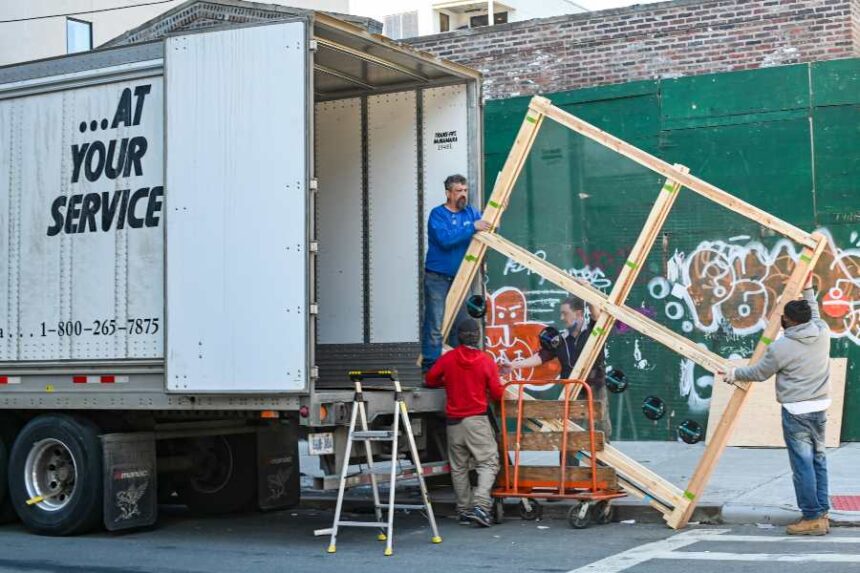Moving can bring about a mix of emotions. It can be both exciting and stressful. Whether you’re moving just across town or relocating to a new city, the process often feels overwhelming. Packing up all your belongings, coordinating schedules, and dealing with logistics can be challenging. The key to reducing this stress is staying organized throughout the process. By taking a thoughtful, step-by-step approach, you can make sure everything goes smoothly and efficiently.
In this article, we have listed some simple ways you can keep yourself organized and make the transition as easy and hassle-free as possible.
Start Planning Early
One of the most important steps to staying organized during relocation is planning early. Waiting until the last minute will only lead to panic and confusion, so giving yourself enough time to prepare is essential. Begin by setting a timeline for important tasks, such as sorting through your belongings, purchasing packing materials, and scheduling services. Starting early also gives you time to adjust if anything unexpected comes up, ensuring you’re not rushing.
Hire Reliable Movers
Choosing the right professionals to help with the process is critical to staying organized and minimizing stress. Reliable movers know the right techniques to handle your belongings carefully and ensure they arrive at your new home safely and on time. When selecting a company, do your research. Read reviews, ask for recommendations, and compare quotes from different services. Look for a moving that provides clear communication, offers the services you need, such as packing or storage options, and, most importantly, is experienced. Hiring trustworthy movers, like Coleman Allied Movers, can make the entire process more efficient and help you stay on track.
Create a Moving Checklist
A detailed checklist is one of the simplest and most effective tools for staying organized. Write down everything you need to do, from packing up each room to transferring utilities and changing your address. Break down larger tasks into smaller steps to make them more manageable. For example, instead of just writing “pack the kitchen,” list items like “pack dishes,” “pack utensils,” and “pack pantry.” This way, you can track your progress and feel more accomplished as you check items off the list. A good checklist will keep you on schedule and ensure that nothing is forgotten.
Before You Pack
Packing up your entire home can be overwhelming, but you can make the process easier by decluttering first. Go through each room and decide what items you want to keep, donate, or discard. Getting rid of unnecessary belongings makes packing simpler and helps you start fresh in your new space. Plus, the fewer items you have to pack, the less time and effort it will take. Decluttering can also save money by reducing the overall weight and number of boxes transported.
Pack One Room at a Time
It’s important to stay focused and avoid feeling overwhelmed when it comes to packing. Packing one room at a time is a great way to do this. By breaking up the work into smaller chunks, you’ll find it easier to manage. It would be best to start with rooms that are not frequently used, such as guest rooms or storage areas. Once a room is packed, clearly label each box with its contents and the room to which it belongs. This will not only keep things organized but will also make unpacking much easier. Focusing on one space at a time will help you stay on track and keep the process from becoming chaotic.
Label Boxes Clearly
One of the simplest yet most effective ways to stay organized during your relocation is to label every box clearly. It may seem like an extra step, but it saves time and frustration later. Be specific when labeling—don’t just write “kitchen” or “bedroom.” Instead, include more details like “kitchen – dishes” or “bedroom – clothes.” This will make it much easier to find what you need when it’s time to unpack. You can also color-code your labels by room or use numbered boxes to correspond with a list of contents. Taking a few extra minutes to label everything properly will make unpacking a breeze.
Keep Essential Items Separate
While packing up your home, you must set aside a few essential items that you’ll need immediately upon arrival at your new place. This should include toiletries, a change of clothes, chargers, important documents, and any medications you may need. Pack these essentials in a separate, easily accessible box or bag, and keep it with you rather than loading it onto the truck. That way, you won’t have to dig through multiple boxes to find what you need in your new home during the first few days. Having these key items on hand can make the transition much smoother.
Use a System for Managing Important Documents
During the moving process, you’ll likely need to keep track of important documents such as contracts, leases, receipts, and identification. It’s easy to lose track of these papers amid the chaos of packing, so setting up a simple system to organize them is essential. You can use a dedicated folder or binder to keep everything in one place or create digital copies to store on your computer or smartphone. Having your documents organized and easily accessible will save you time and prevent unnecessary stress in case you need to reference them during or after the move.
Set Up a Moving-Day Plan
The day of the move can feel hectic, but having a clear plan will help everything run smoothly. Start by creating a moving-day schedule outlining when the truck arrives, when you need to be out of your current home, and any other key details. Coordinate with the moving company to ensure everything is on track. Assign specific tasks to family members or friends who are helping, such as loading boxes or supervising the process. Having a structured plan will keep the day organized and reduce the chances of any last-minute confusion.
Create an Inventory
As you pack up your belongings, it’s a good idea to create an inventory of everything that’s going with you. This can be as simple as making a list of major items or taking photos of your belongings. Keeping track of what you’re moving helps ensure that nothing gets lost or left behind and provides an important record if something is damaged during the process. An inventory will give you peace of mind and make unpacking easier, as you’ll know exactly what to expect at your new home.
Moving can be a stressful experience, but staying organized is the key to making the process much more manageable. By labeling boxes clearly, keeping essential items separate, managing important documents, and setting up a moving-day plan, you can avoid many common headaches. Taking inventory is another smart step to ensure that nothing gets lost along the way. With these simple strategies, you can stay in control throughout your move and enjoy a smoother, more efficient transition into your new home. Organization is the secret to a successful move, and with the right approach, you’ll be settling in comfortably before you know it.




